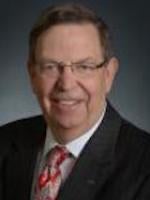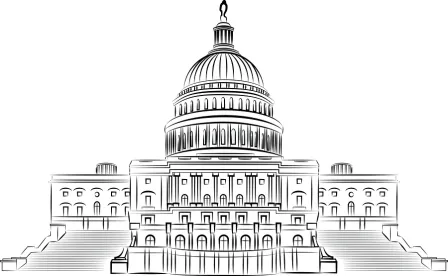So, who is going to be the next Attorney General of the United States, and why should you care? The nominee’s name is Loretta Lynch, the United States Attorney for the Eastern District of New York (Brooklyn), and her confirmation had been held up in the Senate for months in a dispute over the Anti-Human Trafficking bill because it contained anti-abortion funding language. Lynch was nominated by the President last November. Senate Majority Leader Mitch McConnell had promised that the trafficking bill must be completed before the Senate voted on Lynch. And so we waited. But on Thursday, April 23, an agreement was reached and Loretta Lynch was approved by the Senate 56-43.
You should care about Loretta Lynch because her history and prosecutorial priorities will affect what happens to you and your business.
Who Is She?
Lynch is a Harvard-educated North Carolina native who spent hours with her pastor father watching court proceedings in Durham, NC. Her grandfather, also a minister, helped people move north in the 1930s to escape problems with Jim Crow laws.
After graduating from law school, she spent six years in private practice before joining the U.S. Attorney’s office in Brooklyn as a drug and violent crime prosecutor. From 1994 until 1998, she was the chief of the Long Island office and handled several political corruption cases. In 1998, she became the First Assistant United States Attorney (the chief assistant), which is when I met her. In 1999, President Clinton nominated her to be the U.S. Attorney and she was confirmed by the Senate. During her (first) term there, she oversaw the prosecutions of New York Police officers in the Abner Louima case, just as one example.
She left the U.S. Attorney’s office in 2001 and became a partner at Hogan & Hartson (which later became Hogan Lovells). From 2003 until 2005, she served as a board member of the Federal Reserve Bank of New York. President Obama nominated her to serve again as U.S. Attorney in January of 2010, and she aggressively prosecuted both Republican and Democrat politicians. She also investigated Citigroup over mortgage service securities sold by the bank, resulting in a U.S. $7 billion settlement, and she oversaw an investigation which led to a U.S. $1.9 billion fine against HSBC for money laundering violations.
What Do We Expect Her Prosecutorial Priorities To Be?
United States Attorneys across the country have great discretion in the cases their offices pursue, but the Attorney General sets over-arching national enforcement priorities. Attorney General Janet Reno told us U.S. Attorneys that all we had to do was show up at the office every morning and do what we thought was the right thing for our parts of the country, but she also set out national target subject areas for the cases we decided to go after. So what Lynch thinks is a good guide to where she and the Justice Department will go.
First, we should expect continued prosecutions in the financial sector. She led President Obama’s Financial Fraud Enforcement Task Force, and has repeatedly said that “no company is too big to jail.” Her predecessor, Eric Holder, has been lambasted for not coming down hard enough on big wigs, so Lynch might come down harder on executives, just to show she is different and unafraid.
Second, AG Lynch will push, even harder than the DOJ is already pushing, to encourage vigorous Corporate Compliance Programs. We can’t emphasize too strongly what a good idea it is to have a strong compliance program and an even stronger compliance officer. Having said that the compliance program is paramount, what you actually do - how you respond - when a problem arises is even “paramounter,” if that’s a word. AG Lynch knows problems will crop up, even in the most ethical corporate environs, and if we want to avoid very public corporate criminal charges, and we do, we need to react in the right way. We need to make immediate changes to assure that the same mistake doesn’t happen repeatedly, and we need to self-report. Fall on our sword, so to speak. More about self-reporting in a later Alert, by the way.
Third, you’ve probably noticed that you are seeing more reports of criminal investigations in areas of cases where you didn’t see them before. The Government has found the criminal investigation and sanction tools, and is taking them out for a spin much more so than, say, ten years ago. So that comparatively minor civil enforcement matters you are accustomed to will now be more likely to bring along the pain and expense of a companion criminal investigation. AG Lynch will continue and encourage that trend.
Fourth, Lynch presents herself as, and truly is, a beltway outsider. She’s fair and down-to-earth, and won’t be impressed by a slick, silk-stocking presentation from a huge D.C. law firm, the ultimate of beltway insiders. She respects honest talk and decisive action.
And fifth, Loretta Lynch is famous for having great relationships with the federal, state, and local law enforcement agencies who investigate cases. So she won’t like complaints, unless they are truly justified, about how you were treated by the agent who came to interview you. If you get a visit or call from an investigator, we suggest that you respectfully decline to talk with them until you can get a seasoned lawyer there with you. None of this means you have to roll over and play dead with the Feds, but you DO need to be responsive and respectful.
So the first few months of Loretta Lynch’s tenure as Attorney General of the United States will be interesting to watch. As more businesses are more global these days, we all need to keep abreast of what the authorities are doing here and abroad, and who they are. As the shift commander would always say at the end of the morning briefing on TV’s old Hill Street Blues, let’s be careful out there!




 />i
/>i
